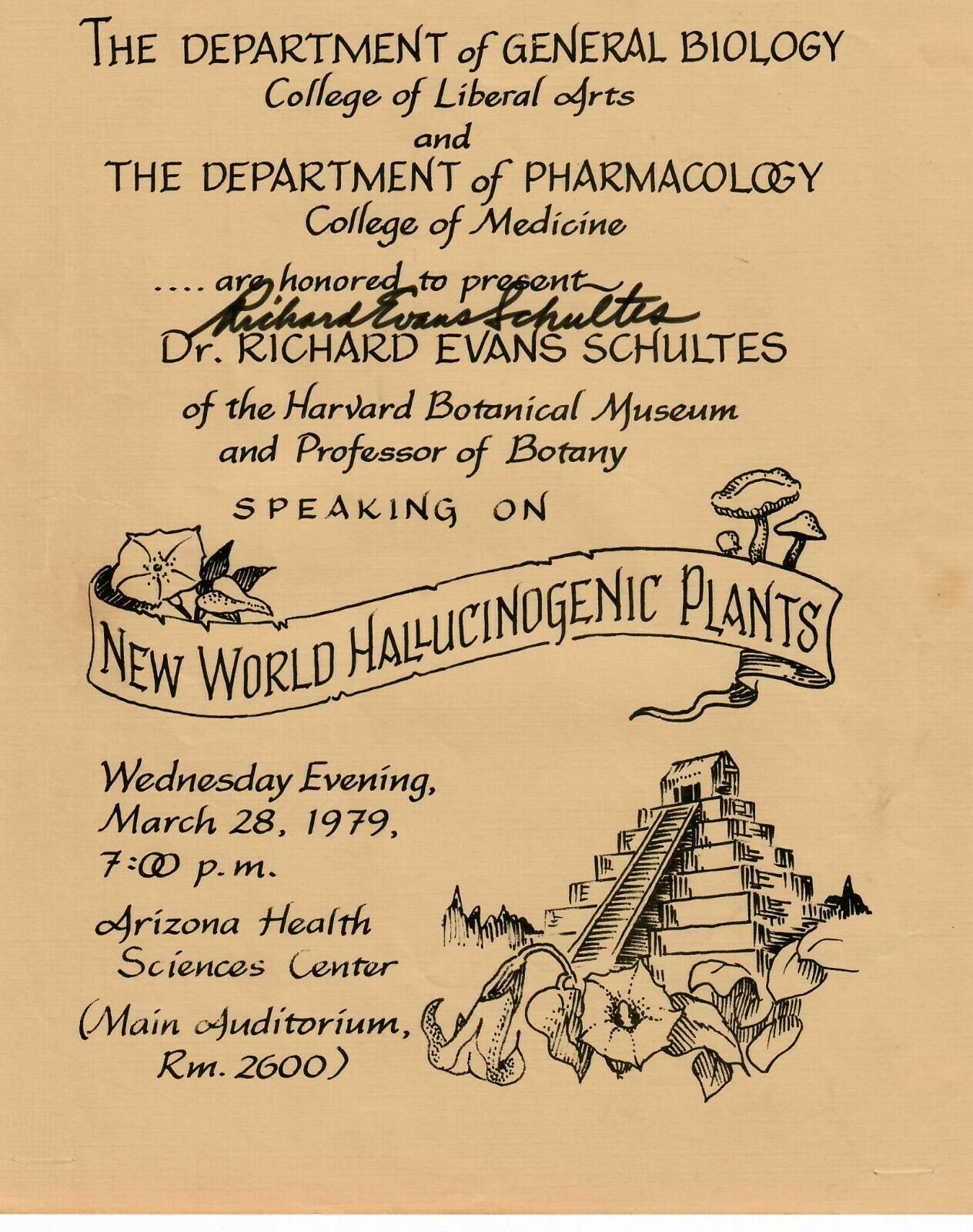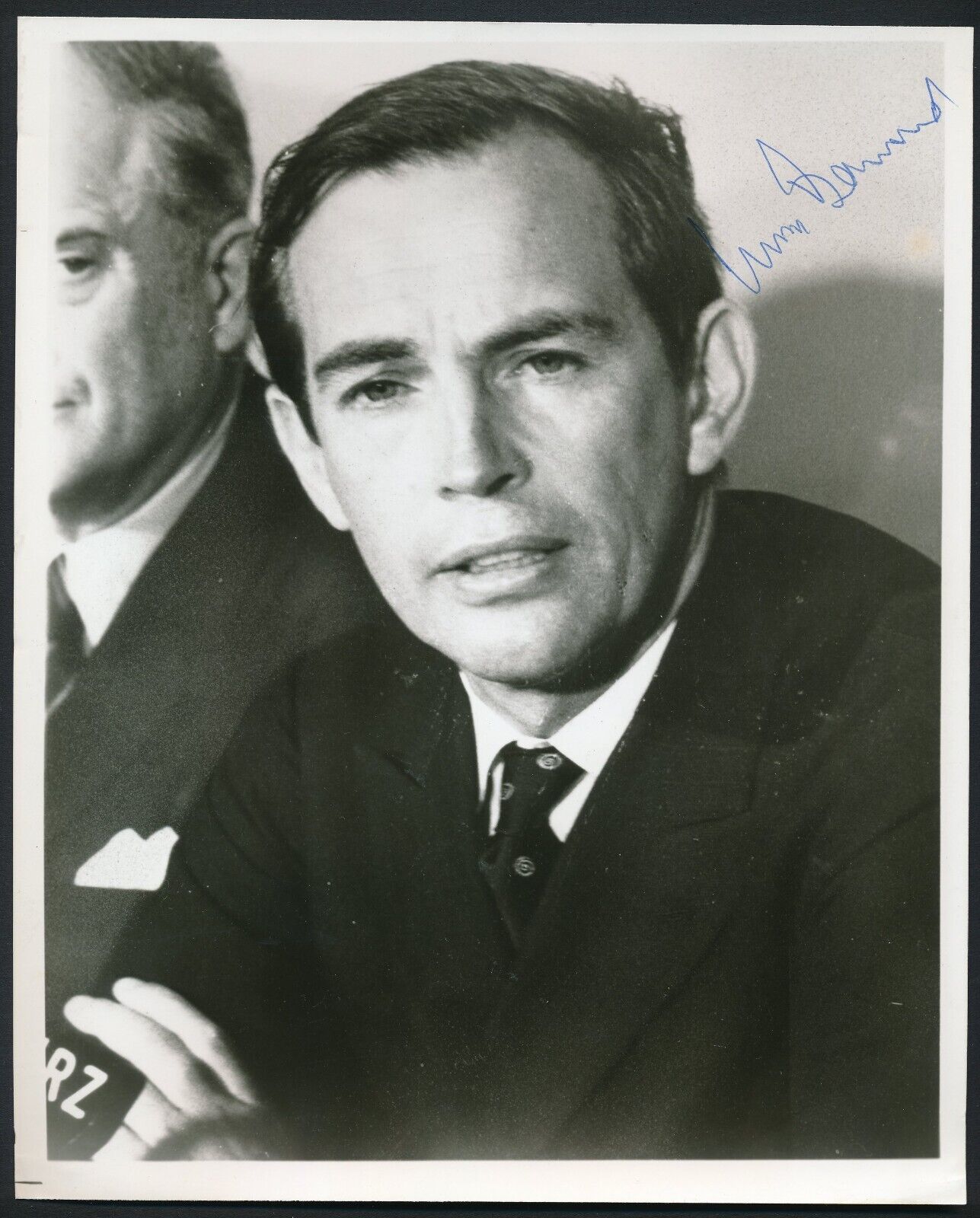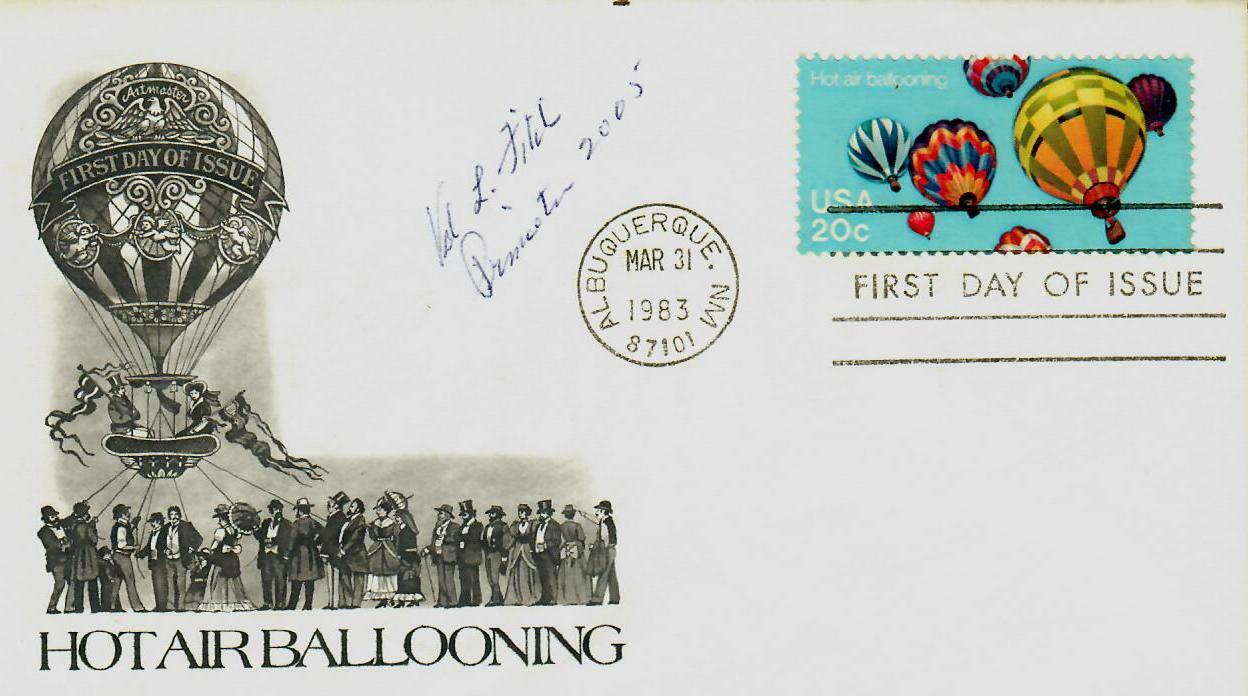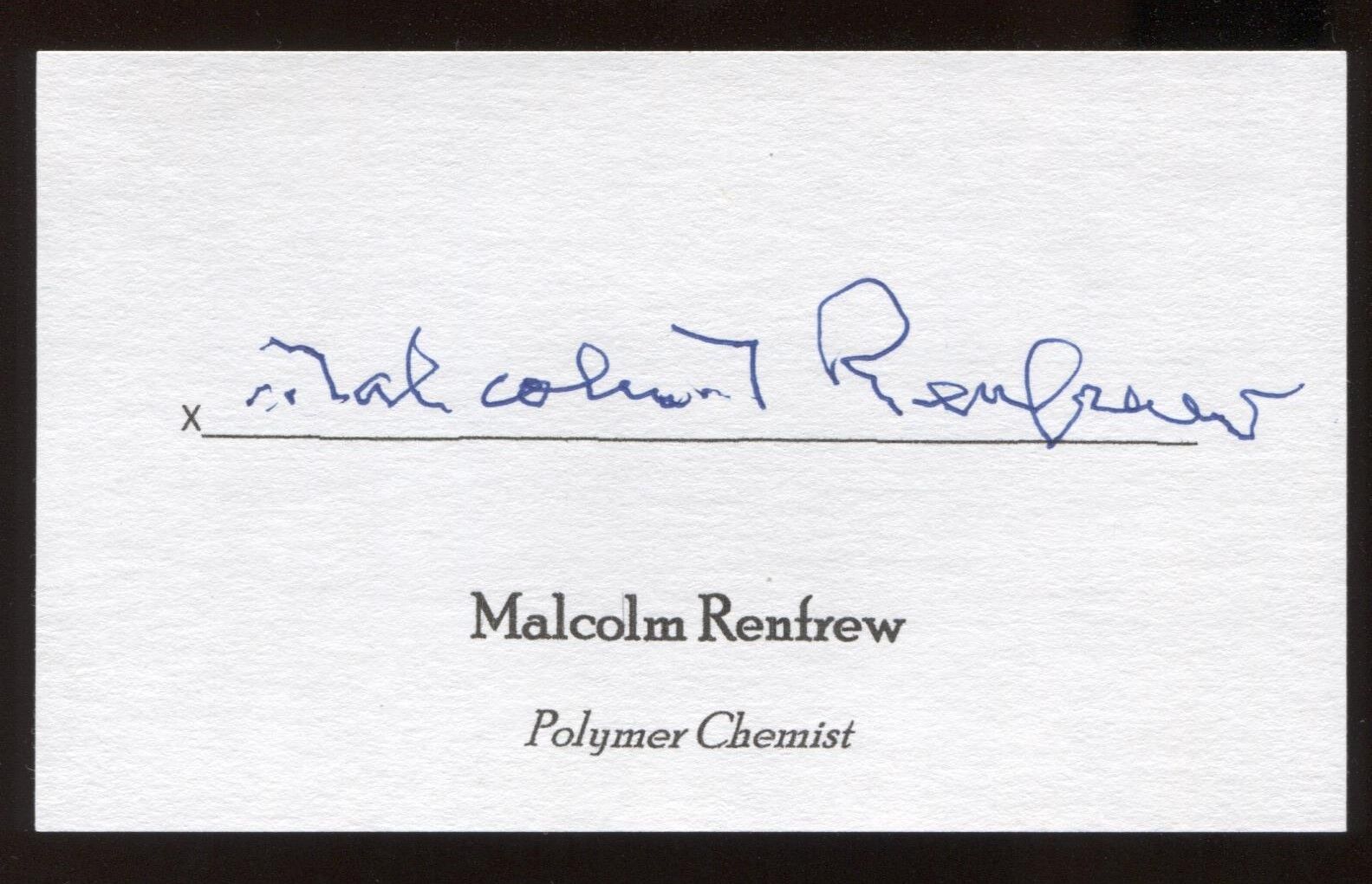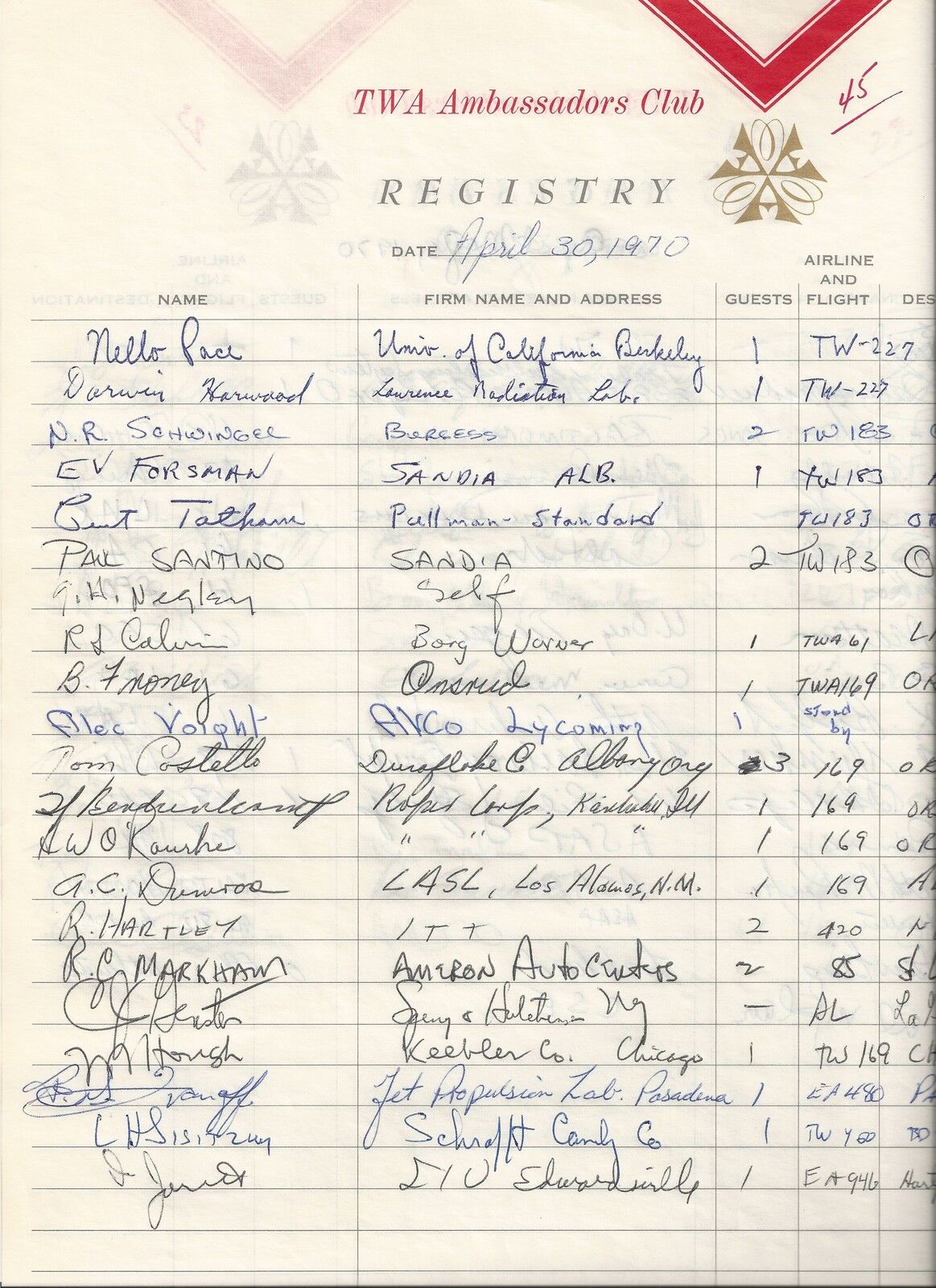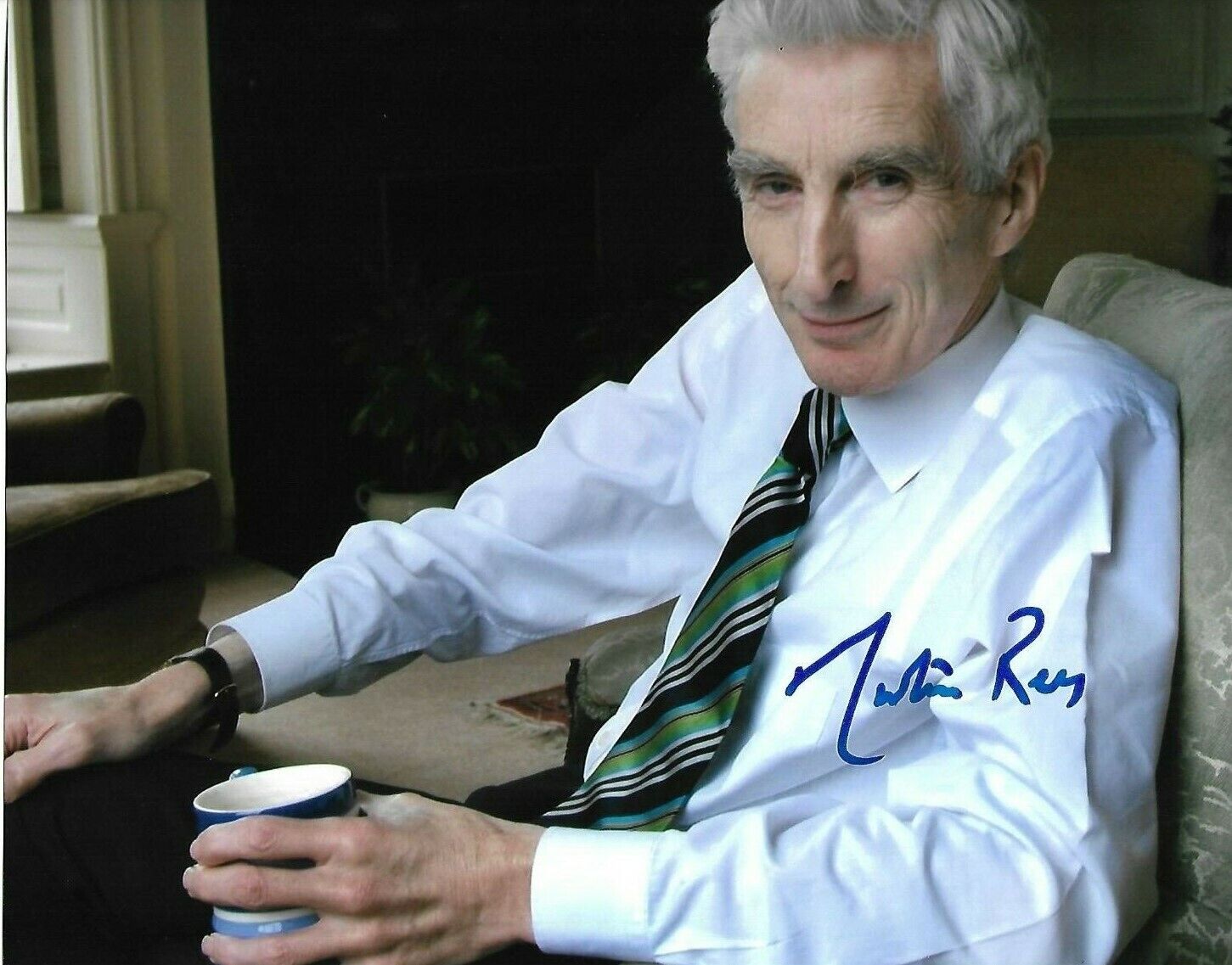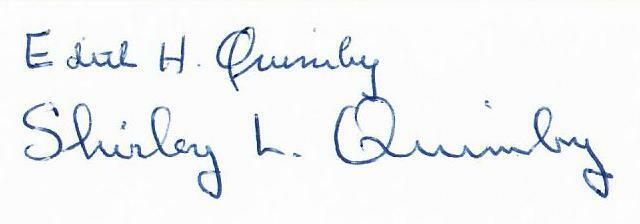-40%
"Father of Modern Ethnobotany" Richard Evans SchultesSigned Announcement COA
$ 211.19
- Description
- Size Guide
Description
Up for auction the"Father of Modern Ethnobotany" Richard Evans Schultes Hand Signed Announcement Dated 1979.
This item is authenticated By Todd Mueller Autographs and comes with their certificate of authenticity.
ES-6201E
Richard Evans Schultes
(
SHULL-tees
; January 12, 1915 – April 10, 2001) was an American biologist. He may be considered the father of modern
ethnobotany
. He is known for his studies of the uses of plants by
indigenous peoples
, especially the
indigenous peoples of the Americas
. He worked on
entheogenic
or
hallucinogenic
plants, particularly in Mexico and the
Amazon
, involving lifelong collaborations with
chemists
. He had charismatic influence as an educator at
Harvard University
; several of his students and colleagues went on to write popular books and assume influential positions in museums, botanical gardens, and popular culture. His book
The Plants of the Gods: Their Sacred, Healing, and Hallucinogenic Powers
(1979), co-authored with chemist
Albert Hofmann
, the discoverer of
LSD
, is considered his greatest popular work: it has never been out of print and was revised into an expanded second edition, based on a German translation by
Christian Rätsch
(1998), in 2001. Schultes was born in Boston; his father was a plumber. He grew up and was schooled in
East Boston
. His interest in South American rain forests traced back to his childhood: while he was bedridden, his parents read him excerpts of
Notes of a Botanist on the Amazon and the Andes,
by 19th century English
botanist
Richard Spruce
. He received a full scholarship to Harvard.
On entering Harvard in 1933, Schultes planned to pursue medicine. However that changed after he took Biology 104, "Plants and Human Affairs," taught by
orchidologist
and Director of the
Harvard Botanical Museum
Oakes Ames
. Ames became a mentor, and Schultes became an assistant in the Botanical Museum; his undergraduate senior thesis studied the ritual use of
peyote
cactus among the
Kiowa
of
Oklahoma
, and he obtained BA in Biology in 1937. Continuing at Harvard under Ames, he completed his Master of Arts in Biology in 1938 and his Ph.D. in Botany in 1941. Schultes' doctoral thesis investigated the lost identity of the Mexican hallucinogenic plants
teonanácatl
(mushrooms belonging to the genus
Psilocybe
) and
ololiuqui
(a
morning glory
species) in
Oaxaca
, Mexico He received a
fellowship
from the
National Research Council
to study the plants used to make
curare
.
The entry of the United States into
World War II
saw Schultes diverted to the search for wild disease-resistant
Hevea
rubber species
in an effort to free the United States from dependence on Southeast Asian
rubber plantations
which had become unavailable owing to Japanese occupation. In early 1942, as a field agent for the governmental
Rubber Development Corporation
, Schultes began work on rubber and concurrently undertook research on Amazonian ethnobotany, under a
Guggenheim Foundation
Fellowship. Schultes' botanical field-work among
aboriginal American
communities led him to be one of the first to alert the world about destruction of the
Amazon rain-forest
and the disappearance of its native people. He collected over thirty thousand herbarium specimens (including three hundred species new to science) and published numerous ethnobotanical discoveries including the source of the dart poison known as
curare
, now commonly employed as a
muscle relaxant
during surgery. He was the first to academically examine
ayahuasca
, a
hallucinogenic
brew made out of
Banisteriopsis caapi
vine in combination with various plants; of which he identified
Psychotria viridis
(Chacruna) and
Diplopterys cabrerana
(Chaliponga), both of which contained a potent short-acting hallucinogen,
N,N-Dimethyltryptamine
(DMT). In his travels he lived with the indigenous peoples and viewed them with respect and felt tribal chiefs as gentlemen; he understood the languages of the
Witoto
and
Makuna
peoples. He encountered dangers in his travels, including hunger,
beriberi
, repeated bouts of
malaria
, and near drowning.
Schultes became curator of Harvard's Oakes Ames Orchid Herbarium in 1953, curator of
Economic Botany
in 1958, and professor of biology in 1970. His ever-popular undergraduate course on
economic botany
was noted for his
Victorian
demeanor, lectures delivered in a white lab coat, insistence on memorization of systematic botanical names, films depicting native ritual use of plant
inebriants
,
blowgun
demonstrations, and hands-on labs (using plant sources of
grain
,
paper
,
caffeine
,
dyes
,
medicines
, and
tropical fruits
). His composed and kindly persona combined with expressive eye gestures masked his exotic experiences and helped capture the imagination of the many students he inspired. In 1959, Schultes married Dorothy Crawford McNeil, an opera soprano who performed in Europe and the United States. They had three children, Richard Evans Schultes II, and twins Alexandra Ames Schultes Wilson and Neil Parker Schultes. Schultes retired from Harvard in 1985. He was a member of
King's Chapel
church in Boston. Despite his Germanic surname he was an
anglophile
. He would often vote for the
Queen of the United Kingdom
during presidential elections because he didn't support the
American Revolution
.
